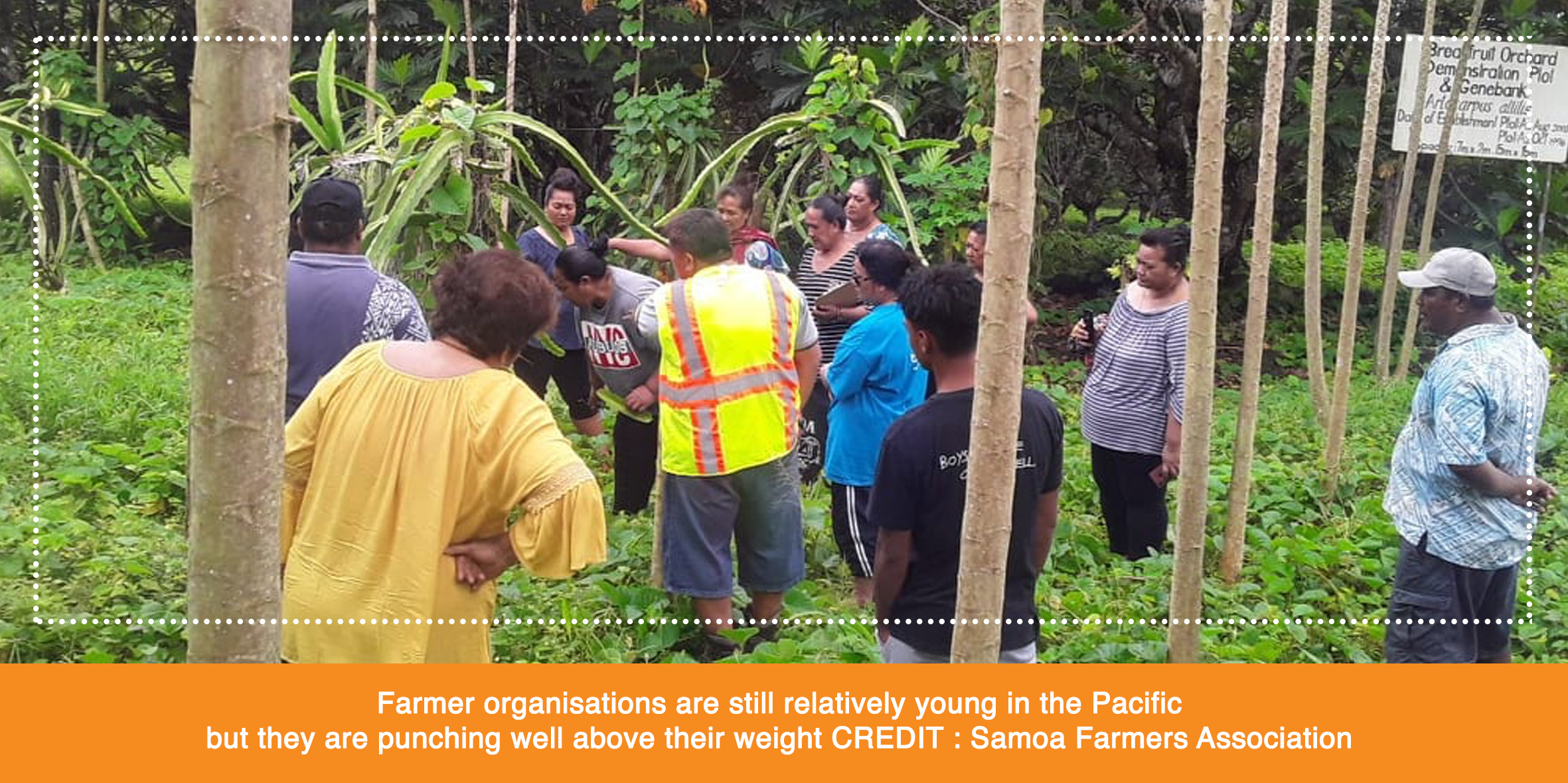May 2022
“Pacific Farmer Organisations are emerging as important partners”

Nearly three-quarters of Pacific Islanders live in rural areas, and their livelihoods rely on agriculture and fisheries. This, along with the impact of climate change means supporting farmers and their markets is as important as ever.
Founder and President of the Papua New Guinea Women in Agriculture Development Foundation, Maria Linibi along with Adi Maimalagi Tafuna’i of Women in Business Development Incorporated (Samoa) and Pacific Farmer Organisations Executive Director Kyle Stice recently shared examples of how farmer organizations are working to extend the reach of governments and development partners to provide services to farmers at the 2022 virtual Pacific Islands Leadership Program (PILP) Alumni Summit.
“Pacific Farmer Organisations are emerging as important partners, working together with governments to service farmers and it’s changing the way farmers operate in the region from agricultural commodities to markets.”
“The work of our members clearly demonstrate that they have an important role to play in helping farmers access markets and improve livelihoods. Farmer organisations are best suited to understand the context and meet the needs of their farmer members,” Kyle Stice said.
Farmer organisations are still relatively young in the Pacific but they are punching well above their weight.
The Pacific Farmer Organisations has now grown to 12 countries as far West as Timor Leste through to the Cook Islands in the East and most recently members in RMI and FSM to the North.
The Organisation’s reach has also expanded with direct linkages to almost 80,000 farmers across the Pacific.
Kyle Stice shared with participants at the summit : “Being connected is so important; connected with information, ideas and even inspiration.”
“In 2007 I was invited to meeting of farmer organisation leaders organized by the FAO and it was this meeting that idea was born to create a Farmer Organisation Network.”
“A year later we formed with only 7 countries represented and we operated informally until about 2012 when we formally registered in Fiji with 9 countries and 23 members,” he said.
With the impacts of natural disasters giving rise to various issues in the sector, governments in the Pacific are preparing for a complex future but there is also a ‘quiet revolution’ working its’ way across the region.
Over the past 5 years, the Pacific Farmer Organisations has risen and continues to rise through the work of its members in 9 Pacific Island Countries including the Organisation’s secretariat in Fiji.
Kyle Stice explained : “There is no real history of farmer organisations in the Pacific with a few exception including the Vanuatu Syndicate Agricole which formed over a century ago and the Fiji Sugar farmer organisations that started around 1937. “
“This is in sharp contrast to many other parts of the world including South East Asia, Central America and even Europe where farmer organisations have historically played a major role in the agriculture sector.”
“One of the reasons why farmer organisations have been slow to develop in the Pacific is related to the heavy involvement of governments in agriculture research, extension and even marketing going right back to colonial times,” he said.
As farmer organisations continue to support its members with activities on the ground, Kyle Stice believes the future for Pacific Farmer Organisations lies in building bigger, better and stronger partnerships which will not only be limited to closing the geographical gaps but also further promoting the interest of its members in regional and international spaces.
